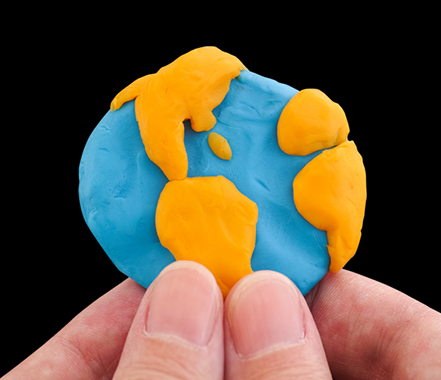

Read full article
on employment practices and opportunities
EnAbling Dream Careers for those with Neurodiversity

2024-03-09
Posted by: ABC News
Author: Eleanor Beidatsch
Despite the ever-growing presence of pop culture in our daily routines, some young people say they have yet to see themselves in the media they consume.
In the close-knit community of Mount Barker in Western Australia's Great Southern, Macklyn Woollard has no shortage of people who care about him.
The 15-year-old animal lover and talented artist also lives with autism, which is a condition that can affect how a person thinks, feels, experiences their environment and interacts and communicates with people.
The Australian Bureau of Statistics found there were more than 200,000 people living with autism in Australia as of 2018, up 25 per cent from 2015.
But Macklyn said the country's large neurodiverse community was not being represented in the media.
"If there was better representation, then it would be better for the autistic community because they wouldn't be discriminated against by as many people," he said.
"I guess it just shows that you can actually do whatever you want no matter what circumstances or whether you've got autism or not."
Michelle Woollard said seeing someone with autism on television would help her son understand he was not alone.
"If you haven't got somebody or something to look to, then it's harder in life," she said.
"Whereas if you've got somebody to look up to, and you know that they've gone through similar things as you, it helps."
"I wanted it to be anyone else'
Despite his success as a musician, singer-songwriter Sheldon Riley faced many challenges as a young person with autism struggling with his sexuality.
Growing up in a religious mixed-race family, Mr Riley said he just wanted to fit in with everyone else.
"I wanted to be anyone else but myself," he said.
"I realised that the person that I am is exactly who people are going to fall in love with, rather than the person I try and mirror back."
He has since become a role model for the neurodiverse community, representing Australia at Eurovision in 2022.
He also appeared on the popular America's Got Talent: Fantasy League reality TV show this year.
Mr Riley said having more neurodiverse people to look up to in his youth would have saved him a lot of heartache.
"I probably would have had a lot less to work on mentally, I would have probably had a lot less to worry about," he said.
"I would have loved to have had more representation … But I'm kind of glad that I get to be a part of this last generation of people that really get to see the beauty of how the world's changing now."
Why young people need role models
Murdoch University associate lecturer in psychology Tundi Loftus works to support young people diagnosed as being on the autism spectrum.
Ms Loftus said neurodiverse teenagers aren't always looking for a mentor with autism, but rather someone who shares their interests.
"The people that they're idolising, or that they're looking up to as role models might be people that are interested in their particular sort of narrow interest," she said.
"For example, I've worked with kids who love Minecraft, and therefore, they're idolising someone who does Minecraft or works in that space."
Ms Loftus said role models can be critical to inspiring young people to set and achieve their goals.
"Being able to set goalposts and give yourself a parameter of something that you're aiming for can be really helpful, because seeing the other people who've done it before you is encouraging," she said.
In 2023, Screen Australia published research that analysed the prevalence of diverse characters in more than 350 scripted Australian TV dramas.
It found there was a higher disability representation in those shows compared to a 2016 survey — but the figure only sits at 6.6 per cent, which the organisation said was still critically low.
Learning from lived experiences
For Mr Riley, seeing families who are proud of their children's difference is very positive as his own family loved him but wanted him to change so he could be happy.
"I feel there is a very big difference between having a family that really understands and cares, and having a family that will do everything they can to change the situation, which also includes changing you," he said.
"It's really heart-warming to see families and parents who have these kids that they don't want to change, they want to celebrate every facet of them and just be so grateful for people out there that are representing for people who are not quite the same."
Sheldon knows he is helping other young people feel represented in way he didn't as a child.
"I get these messages and these emails from parents, and family members, and people that are just so proud of the of their kids, and they get to look up to someone like me," Sheldon said.
"And they're just so proud that they have someone that their kids can look up to."
View full news report here: Role models needed in Neurodiversity in media
